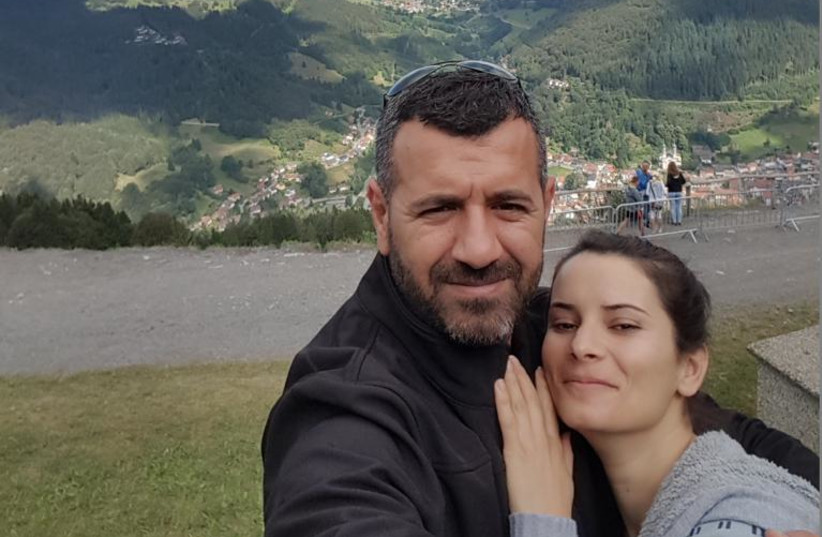More than three years after he was killed, the IDF has released for publication the name of the IDF officer who fell during an operation in Gaza in November 2018. He was identified as Lt.-Col. Mahmoud Kheir Din, married with two sons, from the Druze town of Hurfeish in the North.
Prime Minister Naftali Bennett thanked him “for his contribution and his dedication to the security of the state.” Calling him “a hero,” Bennett noted that Din had posthumously received an award for his bravery by the Chief-of-Staff.
The head of Military Intelligence, Maj.-Gen. Aharon Haliva, also called Din “a hero of Israel,” adding that “after the many operations that he took part in, he deserves to get the respect and honor that becomes him.”
Din was killed by friendly fire during a firefight with Hamas terrorists while carrying out a lengthy, undercover special operation in the Gaza Strip.
Family and friends – finally able to speak in public – praised Din not only for his courage and service, but also his modesty and involvement in local social causes and projects.

We are pleased that with the publication of his name and photographs, Din is finally able to receive the recognition he deserves and the family might be offered a measure of closure and comfort.
Din’s story is a reminder, yet again, of the blood bonds that exist between the Druze and the Jews in the State of Israel. The Druze community, numbering some 145,000, is an integral part of the state. Druze are willingly called up for IDF service, like their Jewish peers, and serve in large numbers throughout the security forces.
There have been many cases of heroism, some better known than others. It is only right that Din’s name is remembered among the brave who have paid the ultimate price for loyalty and service to the country. Among those names that spring to mind are police officer Zidan Saif who was killed when he rushed to stop the deadly terrorist attack in a synagogue in Jerusalem’s Har Nof neighborhood in 2014 and the two police officers, Haiel Sitawe, 30, and Kamil Shnaan, 22, killed on the Temple Mount in 2017.
Recently, Druze police officer Yezen Falah was killed along with Jewish new immigrant Shirel Abukarat in the terror attack in Hadera.
In The Jerusalem Post’s Independence Day supplement earlier this month, military reporter Anna Ahronheim interviewed Lt.-Col. A., the first Druze to complete the IAF flight school, and who now serves as commander of the Southern Command’s Fire Center, another example of a proud member of the Druze community who is giving his all to protect the country.
The examples of members of the Druze community risking their lives alongside Jewish (and some other non-Jewish) citizens are inspiring. The ultra-Orthodox city of Bnei Brak, for example, has decided to name a street after Amir Khoury, a Christian Arab, who died of the wounds he sustained when shooting dead the terrorist carrying out the deadly attack in there in March.
For this reason, it was particularly jarring when Arab Joint List head MK Ayman Odeh, in a Ramadan statement filmed at the Damascus Gate, clearly aimed at Israeli Arabs and Druze, last month urged all those serving in Israel’s security forces to “throw your guns in their faces and tell them our place is not with you.”
The publication of Din’s name is also an opportunity to remember that those who tie their fate with that of the state deserve full and equal rights not just in theory but in practice. The infrastructure of their towns and villages must be brought up to standard and quality employment opportunities, particularly for demobilized members of the security forces, must be available. Druze reservations concerning the Nation State Law must be heard and legislative amendments made to make it clear that Israel considers them full and equal citizens.
The Druze – along with the Circassians, some Christians, some Bedouin and other minorities who serve in the military – are part of the fabric of Israel. The bonds should not depend only on the blood of those who fell protecting the country and its citizens but also by shared dreams for a better future in the one place we can all call home.
